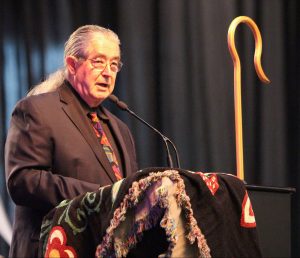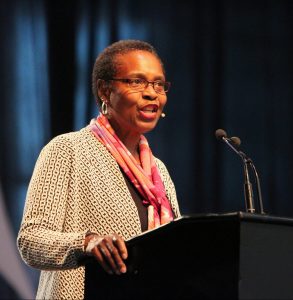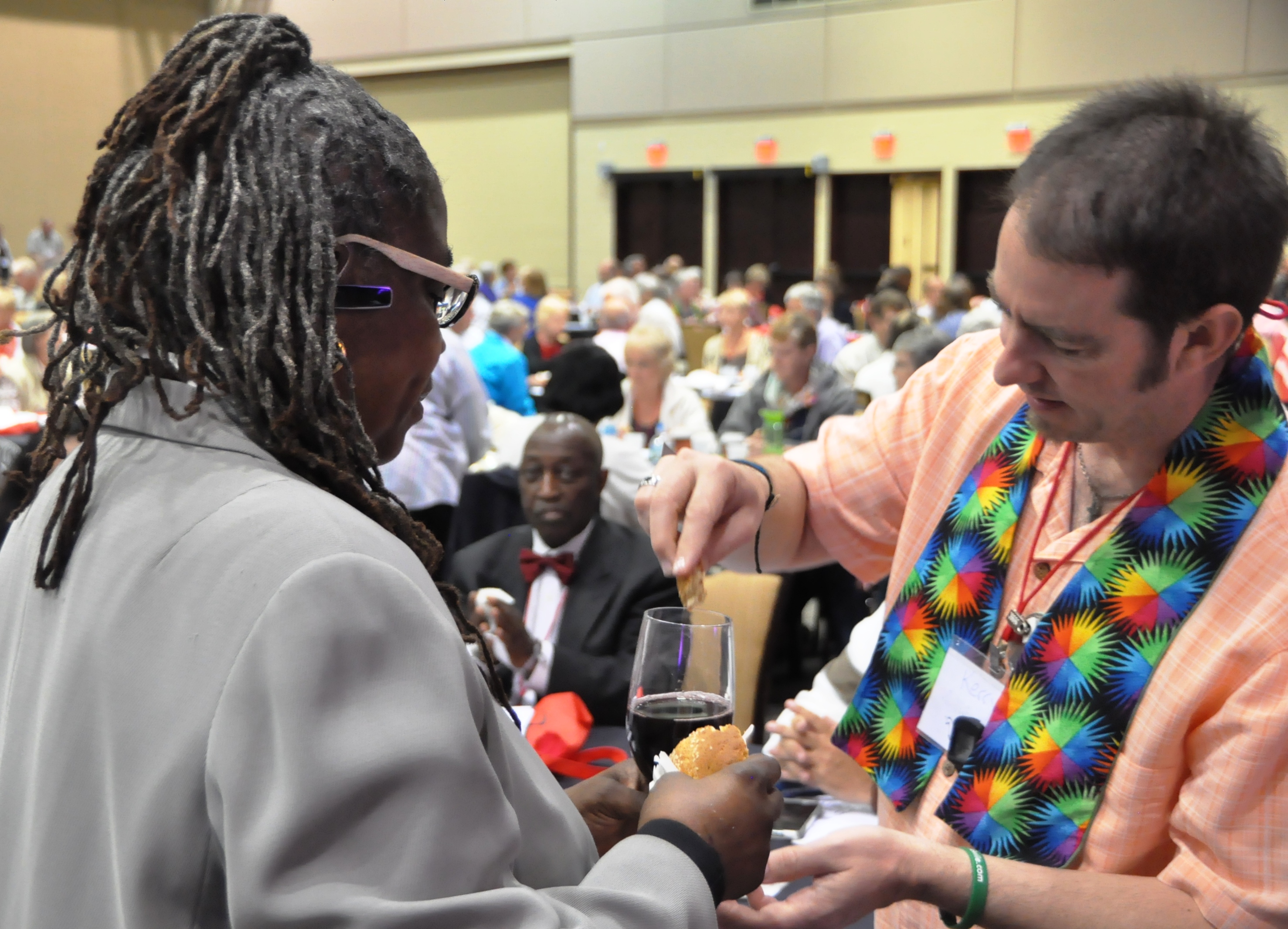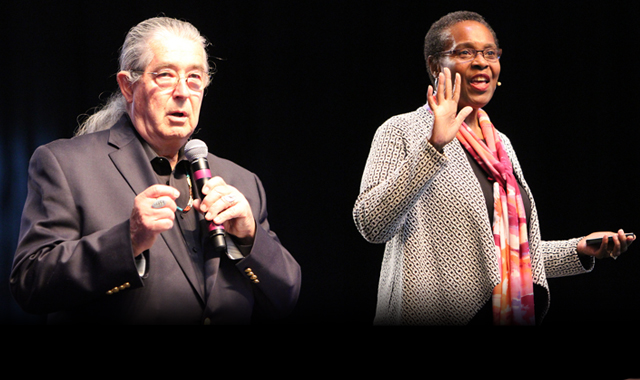The two main featured speakers at The United Methodist Church’s Eastern Pennsylvania Annual Conference in June set a tone that was healing and harmonious, like the Apostle Paul’s good news that Jesus Christ had “broken down the dividing wall of hostility,” uniting Jews and Gentiles as one people. (Ephesians 2:14)
While new walls of hostility and conflict are erected continually across our nation’s social landscape, old walls remain, like those dividing people of indigenous cultures from the dominant society that has oppressed, exploited and disregarded them for centuries.
When nearly 900 Eastern PA Conference clergy and lay members met to handle church business June 16-18 in Lancaster, Pa., they began by first breaking down walls in a solemn opening worship ceremony that sought repentance for an egregious U.S. history of mistreating Native Americans. They also learned ideas for building bridges of relationship, based on truth and accountability and inspired by the conference theme, “Open Wide Your Hearts!” (from 2 Corinthians 6:13).
 Mitakuye Oyasin¸ a Lakota phrase meaning “All my relations,” was the term the Rev Thom White Wolf Fassett, a member of the Seneca nation and a retired elder in the Upper New York Conference, shared with the conference. He emphasized the interconnectedness of all people as part of God’s creation and the mutual responsibility that truth confers on all believers.
Mitakuye Oyasin¸ a Lakota phrase meaning “All my relations,” was the term the Rev Thom White Wolf Fassett, a member of the Seneca nation and a retired elder in the Upper New York Conference, shared with the conference. He emphasized the interconnectedness of all people as part of God’s creation and the mutual responsibility that truth confers on all believers.
Fassett, an internationally respected advocate for justice and reconciliation, preached on “A New Beginning” during the Act of Repentance and Healing toward Indigenous People, a ceremony conducted by members of the conference’s Committee on Native American Ministry (CONAM). He has done the same for other annual conferences who complied with a mandate from the 2012 General Conference to hold such observances.
Citing church complicity in abuse
“We have a lot of work to do together,” said Fassett, before recalling instances of the church’s historic complicity in governmental abuse of Native peoples–from treaty violations to extermination efforts, from forced removal from their lands westward on the Trail of Tears, to forced assimilation of Native children at boarding schools like the first one created in Carlisle, Pa.
He further addressed the “historical trauma” caused by that history, sadly evident in widespread alcoholism, drug abuse, poverty, violence and other ills throughout Indian Country. And he noted widespread rejection of the Christian church by Native people, whose members are often discounted and ignored by mainstream church leaders.
The former and now emeritus General Secretary of the denomination’s Board of Church and Society also lectured that first evening, sharing personal experiences and insights about the struggles and challenges of Native Americans still burdened by historic oppression, exploitation and neglect.
“We’re not here to apologize,” said Fassett, “but to seek ways to bring about healing relationships…and to reconstruct our institutions and principles so we can live together in justice.” Rather than “hand-wringing” over the horrors of history, he urged church leaders to look ahead and ask the same question he once put to revered leaders of the Six Nations Iroquois Confederacy: “How do we prepare and make decisions that will affect the next seven generations?
 The next morning, as if chiming in on cue, retired UM Bishop Linda Lee led the conference body in an exercise titled “Creating a Church and a World for All People.” She shared ways to break down dividing walls of “cultural domination, cultural marginalization and institutional racism.”
The next morning, as if chiming in on cue, retired UM Bishop Linda Lee led the conference body in an exercise titled “Creating a Church and a World for All People.” She shared ways to break down dividing walls of “cultural domination, cultural marginalization and institutional racism.”
The former chairwoman of the General Commission on Religion and Race offered wisdom on how persons, churches and institutions can do the “soul-work” of “unlearning, relearning and new learning” to transform lives, relationships and organizational structures through honest, vigilant assessment and accountability.
Participation in racial solutions
“One of the most important things we can do is to create, find and participate in solutions for the ways we handle reality,” said Bishop Lee, who formerly led the Michigan and Wisconsin episcopal areas. “We need to focus today on race matters because when racial equity becomes a reality in the U.S., other forms of oppression can be overcome.”

Recalling Jesus’ boundary-crossing ministry efforts, she asked conference members, seated at round tables, to share with one another memories of their personal histories, because “knowing and sharing our histories is crucial for healing, redemption and relationships.” Then she had them reflect in groups on their cross-cultural curiosities, impressions and interactions.
“Our phobias often force us to focus on differences,” she said, recommending ideas and resources for understanding and dismantling racism as a mandate of our Christian and Wesleyan beliefs. Her teaching, like Fassett’s, stirred interest among many conference members, and some have requested more information and recordings of the sessions (now available on the conference YouTube channel) to share with their churches.
“We are kin,” Fassett taught, referring to a “tree of peace” throughout the earth whose roots connect all who are created by God. “Even if we leave here not having adopted one resolution, we live as kin under Jesus Christ, in whom we find oneness. I hope in the next 40 years, Native Americans can become equal partners in The United Methodist Church.”

